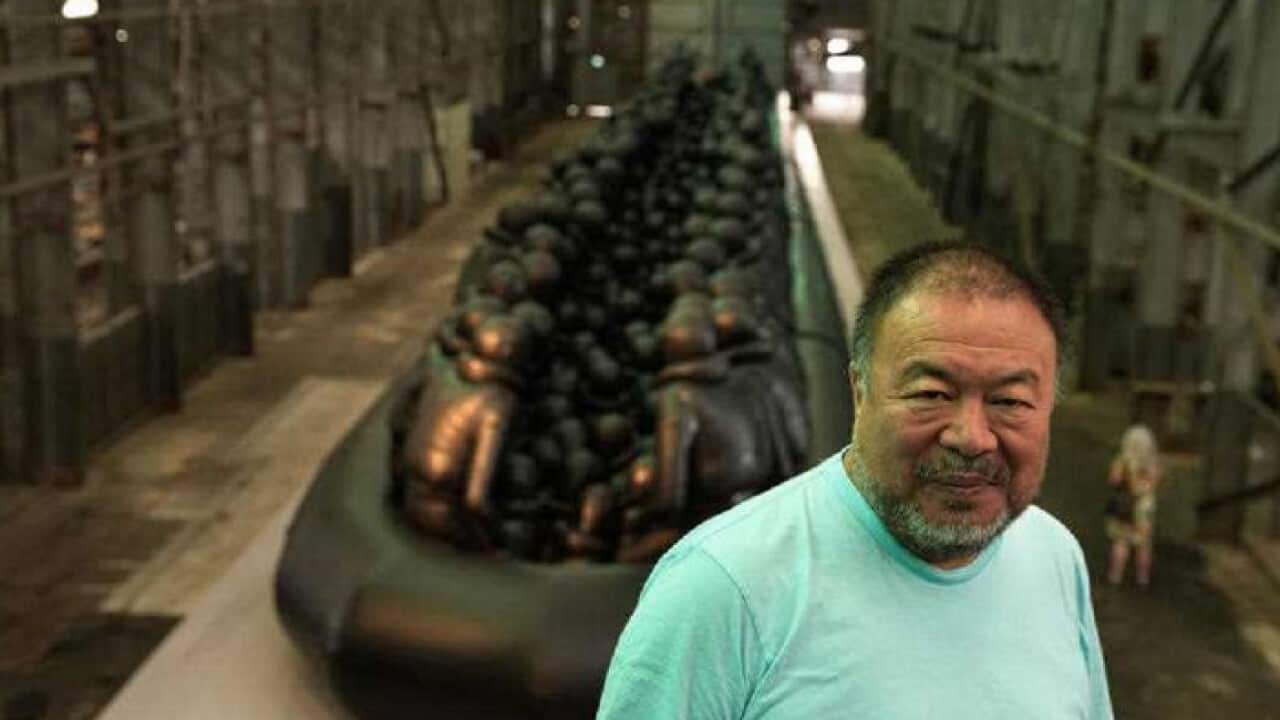Ai Wei Wei's latest installation to be featured at this year's Sydney Biennale looks at what he calls a current crisis of humanity, rather than a refugee crisis.
Chinese artist and activist Ai Weiwei has taken aim at Australia's refugee and asylum seeker policy.
Weiwei is in Sydney to launch a new exhibition inspired by the global refugee crisis as part of this year's Sydney Biennale.
He says the federal government's 'stop the boats' policy ignores the real problem.
"They only leave their home because they're pushed away. We cannot stay stop the boat or build the wall. We should stop the war, stop the famine. We should educate the young people for them to have a better future."
Weiwei has been exhibiting his work in Australia for the last 12 years, with this exhibition his fifth in the country.
He says Australia needs to change its refugee policy to improve its global image.
"I always wanted to visit this island of Australia, where they have this kind of detention and has been world news for too long. And it gives Australia such a bad image about who Australians are and what the Australian culture really is about."
Weiwei has spent the last few years working on art that draws attention to the global refugee crisis.
One of his pieces exhibited in Sydney, called Law of the Journey, is a 60-metre long lifeboat featuring more than 300 refugee figures.
He says even this artwork is unable to fully capture the refugee experience.
"In this piece, you don't hear the ocean waves, the dangers, the darkness, the coldness of the water. You don't see children and babies crying where no parents attend them. You don't see older people, 80/90 years old, trying to survive the journey, trying to come to a land which nobody even accepts them. They cannot even imagine."
Weiwei's new documentary, Human Flow, also premiered at the Sydney Opera House on Thursday (March 15).
The artist visited 40 refugee camps to make the film.
He says it allowed him to see the world from a different perspective.
"Our intelligence requires us to have a curiosity to understand the meaning. Those meanings have to be based on the facts rather than some illusions. So it teaches me so much about our humanity."
Weiwei spent his early years as a refugee from China, living in camps as a result of his father's exile.
He says this experience helped him to relate to the plight of other refugees.
"I grew up in these exile camps far from home and being neglected or being discriminated, insulted in my early time. And I understand. That prepares me for understanding those people who are voiceless and being discriminated."
Weiwei has consistently spoken out against the Chinese government and was imprisoned for 81 days in 2011 without charge.
But he says he now has a greater focus on global issues.
"If I stay in China, my issue basically is about my struggle in daily life towards freedom of speech, human rights, judicial justice in China. But now I am more of a global citizen, which means you take the whole humanity issues and global politics and culture."
In light of China's ruling Communist Party approving the removal of term limits for its leader, Weiwei says he is not surprised.
"The same system, one-party system, never really let people vote, never had an independent judicial system or freedom of speech. So under this kind of circumstance, changing it to have a longer power or have less fast-shifting of power is the same."
